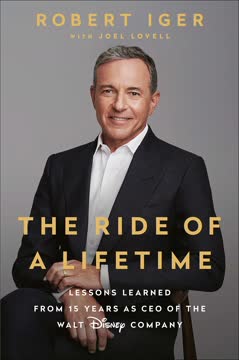Key Takeaways
1. Rationality Requires Constant Effort and Transcendence
The most important thing is that there should be progress.
Progress over perfection. Rationality isn't a state of being but a continuous process of improvement. It's about striving to become less biased, more informed, and better calibrated, rather than achieving an unattainable ideal. The key is to keep moving forward, learning from mistakes, and seeking better understanding.
Tsuyoku naritai. This Japanese phrase, meaning "I want to become stronger," embodies the spirit of continuous self-improvement. It's about the will to transcend current limitations and push beyond perceived boundaries. This mindset is crucial for rationalists who seek to refine their thinking and decision-making.
Confession is not enough. Acknowledging biases and irrationality is a starting point, but it's not the destination. True rationality requires taking concrete steps to correct flaws and improve thinking processes. This involves actively seeking out and implementing strategies to mitigate biases and enhance understanding.
2. Humility is Action, Not Just Confession
To be humble is to take specific actions in anticipation of your own errors.
Humility in practice. True humility isn't about professing ignorance or fallibility but about taking proactive steps to mitigate potential errors. This includes double-checking work, designing fail-safe mechanisms, and constantly seeking feedback to identify and correct flaws.
Social modesty vs. scientific humility. Social modesty is about regulating status within a group, while scientific humility is about improving accuracy and understanding. The latter is practiced even in isolation, driven by a desire for truth rather than social approval.
Avoiding the excuse to shrug. Many appeals to "rationalist humility" are simply excuses for inaction or disbelief. True humility leads to specific actions aimed at improving one's understanding and decision-making, not to a passive acceptance of ignorance.
3. Embrace Improvement Over Egalitarianism
The will to transcendence has no point beyond which it ceases and becomes the will to do worse.
Striving for excellence. The pursuit of rationality involves a commitment to doing the best one can, even if it means surpassing others. This isn't about pride or superiority but about a dedication to continuous improvement and a refusal to be limited by the average.
Life is not graded on a curve. The will to transcendence has no finish line. It's about running as fast as you can, without worrying about pulling ahead of other runners. The focus is on personal growth and achieving one's full potential, not on maintaining a specific position relative to others.
Downplaying accomplishments. While it may be wise to downplay accomplishments to avoid envy, it's crucial to avoid being ashamed of doing better. The true meaning of recognizing flaws is to always reach higher, without shame.
4. Seek Third Alternatives to Escape False Dilemmas
Noble Lies are generally package-deal fallacies; and the response to a package-deal fallacy is that if we really need the supposed gain, we can construct a Third Alternative for getting it.
Beyond the binary. False dilemmas limit choices to two options, often justifying a questionable policy by pointing to a supposed benefit over inaction. Rationality demands actively seeking "Third Alternatives" that offer superior outcomes.
The search for alternatives. Decision-making involves generating options, not just comparing them. This requires creativity, brainstorming, and a willingness to challenge existing assumptions. The goal is to find the optimal solution, not just a defensible one.
Motivated search. Be wary of searches that stop prematurely when a personally convenient policy is found. A truly altruistic search continues until the best possible strategy is identified, even if it disadvantages the searcher.
5. Invest Hope Wisely, Not in Lotteries
It encourages people to invest their dreams, their hopes for a better future, into an infinitesimal probability.
Lotteries as sinks of emotional energy. Buying lottery tickets encourages people to invest their dreams and hopes into an infinitesimal probability, diverting their emotional energy from more productive pursuits. This can hinder their motivation to pursue education, entrepreneurship, or career advancement.
The illusion of epsilon hope. The lottery sells an illusion of a tiny chance of becoming wealthy, which can be more enticing than the hard work required for real success. This artificially sweetened prospect can overshadow more realistic and achievable goals.
Rationality as burning lemons. Overcoming bias requires recognizing biases as harmful and actively working to eliminate them. This involves rejecting the temptation to rationalize self-destructive behaviors like buying lottery tickets.
6. Uncertainty Doesn't Justify Ignoring Evidence
If you're going to ignore a probabilistic counterargument, why not ignore a proof, too?
The fallacy of "still a chance." Some people dismiss overwhelming evidence by claiming that "there's still a chance" of an alternative outcome. This ignores the vast difference between negligible probabilities and genuine possibilities.
Certainty vs. uncertainty. There's a qualitative distinction between "no chance" and "a very tiny chance, but worth keeping track of." Probability theory allows us to calculate chances that are too small to be worth the mental space to keep track of it.
Consistency in reasoning. If you're going to ignore a probabilistic counterargument, why not ignore a proof, too? The same standards of evidence and reasoning should apply regardless of the desired outcome.
7. Avoid the Fallacy of Gray: Distinguish Degrees of Uncertainty
Knowing only gray, you conclude that all grays are the same shade.
Beyond black and white. The world isn't simply black and white, but that doesn't mean all uncertainties are equal. There are degrees of gray, and it's crucial to distinguish between shades that are nearly white and those that are nearly black.
The Quantitative Way. Even if something can't be switched from on to off, it can still be increased or decreased. This applies to moral judgments, personal self-improvement, and scientific understanding.
Imperfect but improving. Recognizing that everyone is imperfect doesn't mean that all imperfections are the same. Some people are less imperfect than others, and striving for improvement is always worthwhile.
8. Argument Screens Off Authority: Focus on Reasons, Not Rank
If we know the arguments fully, we have very little left to learn from authority.
The power of reasons. A strong argument eliminates reliance on the personal authority of the speaker. If the technical arguments are good enough, the speaker's credentials become less relevant.
Asymmetry of evidence. Knowing authority is useful, but knowing the arguments fully makes authority less important. This highlights the primacy of evidence and reasoning over mere pronouncements.
Causal diagrams. Causal diagrams can illustrate how argument screens off authority. If we know the value of the "Argument" node, it separates the node "Truth" from the node "Expert Belief."
9. Politics is the Mind-Killer: Resist Bias and Seek Truth
Politics is an extension of war by other means.
Emotional reasoning. Political discussions often trigger strong emotions, clouding judgment and hindering rational debate. This is because politics in the ancestral environment was a matter of life and death.
Arguments as soldiers. In political debates, arguments are often treated as soldiers, to be defended or attacked regardless of their validity. This leads to biased reasoning and unproductive discussions.
The importance of objectivity. While neutrality may be impossible, it's crucial to resist getting in "good, solid digs" at opposing viewpoints. The goal should be to seek truth, not to win arguments.
10. Recognize and Mitigate the Correspondence Bias
We tend to see far too direct a correspondence between others’ actions and personalities.
Situational awareness. The correspondence bias is the tendency to attribute others' behaviors to their inherent dispositions, while attributing our own actions to situational factors. This leads to misunderstandings and inaccurate judgments.
Prior probabilities. Consider the prior probabilities of different explanations for behavior. It's more likely that someone is acting normally in response to their situation than that they possess a rare, mutant disposition.
Everyone sees themselves as normal. To understand why people act the way they do, realize that everyone sees themselves as behaving normally, given their circumstances. Ask what situations people see themselves as being in.
11. Beware Affective Death Spirals: Resist Uncritical Supercriticality
A guilty system recognizes no innocents.
Positive feedback loops. The affect heuristic, where subjective impressions of goodness/badness act as a source of fast judgments, can lead to affective death spirals. This occurs when positive feelings about an idea reinforce each other, leading to uncritical acceptance and overestimation of its benefits.
The dangers of uncriticality. When positive affect goes supercritical, it becomes difficult to acknowledge any potential drawbacks or limitations of the idea. This can lead to disastrous consequences, as seen in the Enron scandal.
Maintaining balance. To resist affective death spirals, it's crucial to maintain a balance between enthusiasm and critical thinking. This involves actively seeking out and considering potential downsides, even when it's uncomfortable.
12. Cultish Countercultishness: Avoid the Trap of Anti-Groupthink
You cannot obtain more truth for a fixed proposition by arguing it; you can make more people believe it, but you cannot make it more true.
The cult attractor. Every cause, noble or otherwise, is susceptible to becoming a cult. This is due to inherent human tendencies toward ingroup-outgroup bias, happy death spirals, and uncriticality.
Reversed stupidity is not intelligence. Just as blindly following a group can lead to error, so too can blindly opposing it. The goal is to think independently and critically, not simply to negate the group's beliefs.
The importance of doubt. While doubt is a valuable tool for rationalists, it must be used properly. A rational doubt arises from a specific reason to suspect a belief is wrong and leads to investigation. Mere profession of doubt is insufficient.
Last updated:
Review Summary
How to Actually Change Your Mind receives high praise for its insightful exploration of rationality, cognitive biases, and decision-making. Readers appreciate Yudkowsky's clear explanations, practical advice, and thought-provoking ideas. Many find the book motivating and impactful, noting its ability to challenge beliefs and improve critical thinking. Some critique its structure and occasional patronizing tone. Overall, reviewers commend the book for its valuable lessons on becoming more rational and making better decisions, with many considering it a must-read for those interested in improving their thinking processes.
Similar Books










Download PDF
Download EPUB
.epub digital book format is ideal for reading ebooks on phones, tablets, and e-readers.





